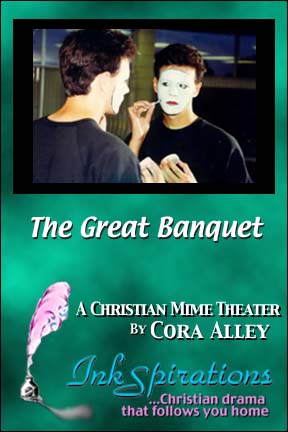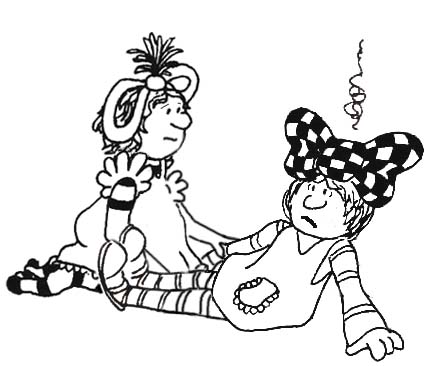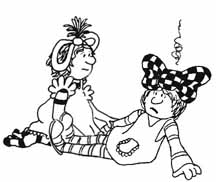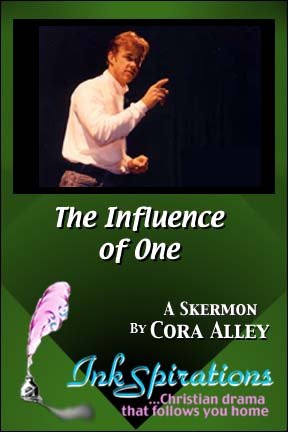-
 These four skits are on the theme of "The Four Loves That Shape Our Lives": "Eros," that ignites our passions; "Phileo," that urges us to develop like-minded loyalties; "Storge," that cements our family relationships, and God's "Agape" love, that provides the "light and salt" attitudes and behaviors which keep our three earthly relationships from spoiling.
These four skits are on the theme of "The Four Loves That Shape Our Lives": "Eros," that ignites our passions; "Phileo," that urges us to develop like-minded loyalties; "Storge," that cements our family relationships, and God's "Agape" love, that provides the "light and salt" attitudes and behaviors which keep our three earthly relationships from spoiling. -
 This Christian Mime Theater skit portrays those who accept the invitation of God to join His banquet (life in Christ) as well as those who "reject it, for their own weak reasons. This pantomime paints a visual picture, and sets up a message on salvation and free will, through a contemporary lens.
This Christian Mime Theater skit portrays those who accept the invitation of God to join His banquet (life in Christ) as well as those who "reject it, for their own weak reasons. This pantomime paints a visual picture, and sets up a message on salvation and free will, through a contemporary lens. -
 This "dream play" explains the reason for God becoming man in the form of Jesus Christ: to speak His truth to us Himself, and to take the punishment that was intended for us so that we may have fellowship with Him in eternity. In the simple story of a heart-broken little girl, searching for her lost hamsters, we see the "Heart of God."
This "dream play" explains the reason for God becoming man in the form of Jesus Christ: to speak His truth to us Himself, and to take the punishment that was intended for us so that we may have fellowship with Him in eternity. In the simple story of a heart-broken little girl, searching for her lost hamsters, we see the "Heart of God."









